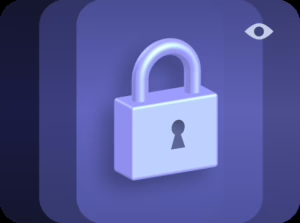How to prevent a data breach
Data breaches have become all-too-common, posing significant risks to businesses and their partners. This article aims to shed light on the importance of being prepared for a data breach, particularly emphasizing the role of partners and vendors in data breach prevention and response. So let’s ask, how do you prevent a data breach?
Table of Contents
Is your business adequately prepared to respond to a data breach? Perhaps you have a robust information security program. Do you have incident response and disaster recovery plans ready to go? Great. Maybe you are utilizing various security tools to provide defense in depth. Do you carry cyber insurance? Do you implement best practices and follow security frameworks such as NIST? If this sounds like your business, then you may be well on your way to preventing a breach, or at the very least, have the ability to minimize the impact and recover when a breach inevitably reaches your front door. But what about your partners? Or their partners, or partners’ partners… Who can you trust?
Recent examples of data breaches involving 3rd-party vendors
To learn how to prevent a data breach, you must also learn about companies that had breaches happen to them. In recent years, we have witnessed several high-profile data breaches involving third-party vendors. For instance, AT&T customer data was exposed in January 2023 through a third-party vendor that had been hacked affecting around nine million customer accounts. The data that AT&T had provided to the marketing vendor which had been exposed included personal information like customer names, account numbers, phone numbers and email addresses. In November of the same year, Dollar Tree notified consumers of a data breach affecting almost 2 million people after the hack of service provider Zeroed-In Technologies.
Businesses do not operate in a vacuum. Our world is one of a tangled web of data exchange, often involving hundreds or thousands of people, vendors and partners all over the world. Like the two examples above, a single business is rarely an isolated victim, and many breaches involve third-party vendors or data partners. There is plenty of collateral damage to go around that can negatively impact your business, whether or not you are doing all the right things.

Common root causes and how to prevent a data breach
Understanding the root causes of data breaches is important for knowing how to prevent a data breach yourself. The most common causes include weak and stolen credentials, backdoor and application vulnerabilities, malware, social engineering, too many permissions, ransomware, and improper configuration and exposure via APIs. An all too often overlooked cause of data breaches is a failure to vet data partners properly and manage vendor risk. We are often quick to trust but haven’t done the due diligence necessary to protect our businesses from this common threat.
Impact on small to midsize businesses – how to prevent a data breach
The impact of a data breach can be devastating for small and midsize businesses. These businesses are vulnerable to having their operations disrupted by an attack, and they could take a long time to recover — or even worse, never recover at all. The financial cost can be staggering, with data breaches costing 20% of affected midmarket companies at least $1 million, not to mention severe reputational and brand damage.
Future revenue is at risk too because what potential clients will want to do business with a company that has poor security and privacy practices? Even the largest businesses are not immune, but often have the financial and technical resources to weather the storm and make it out alive but not unscathed.
Use security tools like Assumed for data breach prevention
Businesses can employ various security tools and techniques to prevent data breaches. These include data leak monitoring solutions, vendor due diligence and third-party risk management. Employing threat intelligence tools and behavioral analytics can also help examine all business systems for anomalous behavior and indicators of compromise. Security tooling that can assist you in vetting data partners and vendors is arguably one of the most important investments you can make in building trust with partners, customers and consumers.
The importance of security frameworks and vetting partners
Security frameworks such as the NIST Cybersecurity Framework (CSF) provide comprehensive guidance and best practices that organizations can follow to improve their cybersecurity risk management. If you need more time to get ready for something like NIST CSF, try the Minimum Viable Secure Product (MVSP) checklist for conducting a self-assessment or vetting vendors. It’s crucial to vet partners and their partners to avoid collateral damage from a breach involving a vendor.
So how do you prevent a data breach? By being prepared, this involves implementing robust security measures within your organization and ensuring that your partners and vendors are equally prepared, capable, and trustworthy. By understanding the common causes of data breaches and the potential impact on your business, you can take proactive steps to safeguard your valuable data.
If you feel like you’ve entered the Twilight Zone of data security, you are not alone. The truth about your partners is out there. Take proactive steps to protect your business and consumers alike.

Turn Assumptions into Trust
Both 3rd party vetting and data leak monitoring are big apects to know about when learning how to prevent a data breach. Assumed is an intuitive data partner vetting solution that can be used to vet data partners, assess vendor risk and determine whether they are treating people and their personal data with respect. Using synthetic consumer contacts, or honey tokens, with working email addresses and phone numbers, the Assumed inbox captures incoming email messages, SMS/texts and voice calls creating a unique opportunity to monitor communication flows and consumer contact points without needing to expose or intrusively monitor sensitive consumer data.
Assumed’s seed contacts can be directly inserted into contact databases such as a CRM, used to fill forms on landing pages, seeded in honey pots or added to contact lists for newsletters, marketing campaigns or consumer lead systems. After planting a seeded contact, simply monitor the Assumed inbox to gain valuable insights. If the contact begins receiving unsolicited calls, texts, or emails from somewhere they shouldn’t be, then that data partner or vendor can not be trusted. The contact could have been sold or shared without permission or may even have been exposed in a data leak.
Assumed’s uses can be applied to vendor vetting, due diligence and for purposes including data leak detection, process validation, monitoring for insider theft, sales and customer support training, market research, competitive intelligence and more. If you are pursuing compliance with security and privacy regulations, best practices and security frameworks such as NIST, look no further than Assumed. Now that you’ve learned how to prevent a data breach, get out there and start putting the practices you’ve learned into action!

